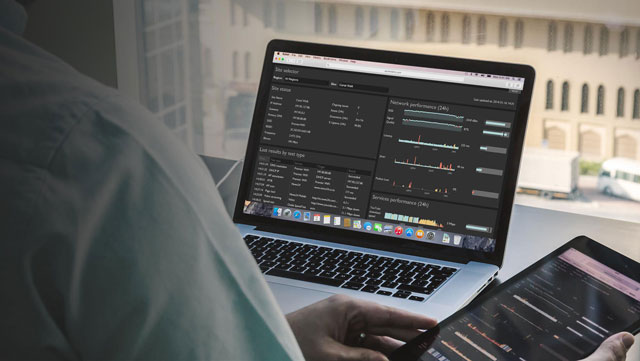
How often have you connected to a public Wi-Fi service only to find it’s awfully slow or not providing Internet access at all? A new Cape Town-based start-up, founded by experts in the telecommunications industry, wants to change this by providing tools to Wi-Fi service providers that allow them to monitor the performance of their hotspots remotely.
The company, Asimmetric, which has raised millions of rand in funding from angel investors, has secured a contract with a large South African Wi-Fi network operator, which it can’t name yet, and is now considering international expansion, too.
The company’s solution is already installed in shopping malls, hospitals, hotels and restaurants in Johannesburg, Cape Town and Durban.
“Wi-Fi providers lack the tools to understand how users experience their networks,” says Asimmetric co-founder David Wilson. “Users can get stuck, unable to connect, login, access Facebook or stream YouTube, and the Wi-Fi provider doesn’t realise there’s even a problem.”
Asimmetric’s founders — the others are Ross Douglas, Michael Champanis and Fouad Zreik — have spent the past couple of years designing and building both the hardware and the software to provide detailed remote reporting, including analytics, about Wi-Fi hotspots to operators.
They have developed the “Bot”, a piece of hardware that is installed at a Wi-Fi hotspot. The Bot monitors the hotspot and uses services such as YouTube and Facebook, mimicking the actions of a human user.
The solution can even detect interference from other networks, allowing support engineers to troubleshoot workarounds remotely.
The software evaluates the Wi-Fi user experience in real time on a series of dashboards, and alerts the provider to any issues. It also offers analytics to help diagnose problems.
Wilson, who previously worked at telecoms consultancy Delta Partners, says Wi-Fi operators have precious little data about the real quality of their networks. “It’s not about just signal strength or download speed, but about the user experience with real-world services such as YouTube and Facebook.”
He says Asimmetric will offer monitoring and reporting tools for mobile network operators and fixed-line providers at a later stage, but for now it is focused on the Wi-Fi market specifically given how quickly it’s growing.

“There are something like 50m public Wi-Fi hotspots worldwide; there’ll be 340m by 2018,” he says. “Less than 15% of those hotspots are carrier grade today; more than 70% will be carrier grade by 2018. There will be huge demand for Wi-Fi offering an excellent quality of experience.”
Ultimately, says Wilson, Asimmetric’s goal is to be the “independent authority on user experience for every kind of network, mobile and fixed”.
The founders are keen to expand internationally, too, and have “a couple of interested parties already”.
Where the solution has been deployed in South Africa, it has meant fewer site visits by network engineers, he says. The Bots can provide feedback using the mobile networks, too, and so aren’t reliant on the hotspot for providing feedback — useful if the site goes down. — (c) 2015 NewsCentral Media

